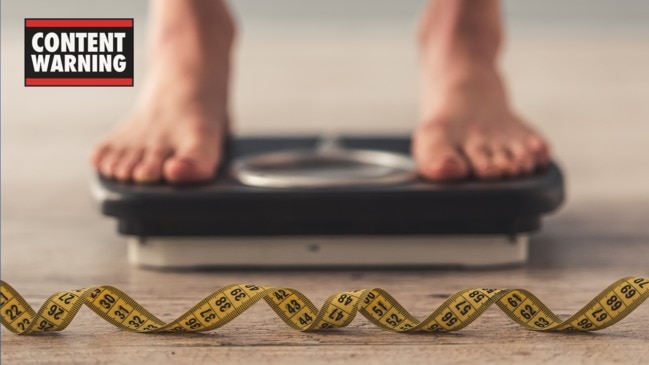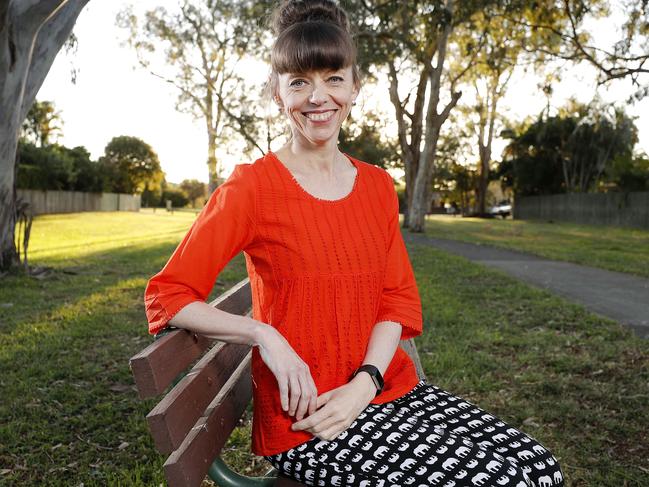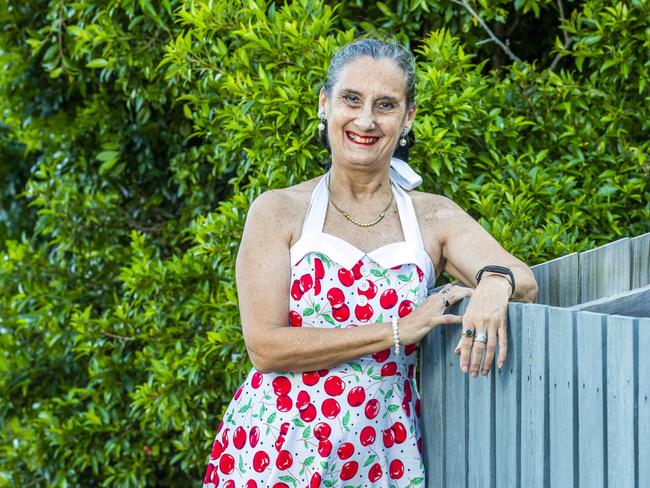Eating disorders sparked in later life
It’s a syndrome not usually associated with the elderly, but it is now afflicting older Queenslanders at a disturbing rate.

QLD News
Don't miss out on the headlines from QLD News. Followed categories will be added to My News.
Eating disorders in older people are growing at a faster rate than in any other demographic.
Dispelling the myth that eating disorders are reserved for the young, the Butterfly Foundation reports that life-changing events such as divorce, infertility and even menopause can all play a part in triggering disordered eating later in life.
‘Don’t feel guilty’: Gene research takes the stigma out of eating disorders
Abby Coleman shares her eating disorder story to help others
Eating disorders are not a choice, experts warn
Queenslanders in nursing homes are battling the devastating illness.
Eating disorders researcher June Alexander said: “People can suppress their habits and present like everything is just fine for decades.
“Older people may feel embarrassed to admit they have a problem. But there are usually signs.
“They may be counting every calorie and working out how to exercise it off later.
“They may be panicked at the idea of going out to a work lunch where they can’t control what’s on offer.
“Maybe an older woman who has to stay longer in the workforce is self-conscious about how she looks.
“When sufferers feel anxious or in a situation they cannot control the habits can be triggered.
“We see residents in nursing homes battling with their eating demons as they may feel stressed and anxious in their environment.”
Those suffering later in life may have had eating disorders in their youth, with decades of recovery followed by relapse during a tough time.

Others may not have the illness in early life but the loss of youth can weigh heavily on body image.
QIMR Berghofer Medical Research Institute is investigating the genetics of eating disorders. This may result in being able to predict a person’s risk so interventions can be put in place.
In the 2019-20 financial year, there were 5870 admissions to Queensland hospitals for all types of eating disorders.
“Eating disorders don’t usually come alone,” Dr Alexander said.
“They are often accompanied by depression or anxiety.
“Controlled eating is a coping mechanism, sadly a coping mechanism that wants to kill you.
“But at any age it is possible to recover.
“Once you have reached out for help the brain can be trained into more healthy thoughts.”
Cleveland woman Jennifer Marsh is 48 and battled “the A” from age 11 until her early 40s.
“I am in recovery and I still cannot bear the word ‘anorexia’,” Ms Marsh said.
“All my life I have been a perfectionist with anxiety.
“That combination lead me to look like a walking skeleton at the height of the disease.
“I almost died. I could go for weeks eating nothing but an apple a day.
“I was a teacher and had to give it up in the end, the disease took hold of my life.”

Ms Marsh said her psychiatrist told her she was born anorexic and it was her personality that triggered it.
“I do believe in the link to genetics. It was hard later in life to ask for help but I did and now I am recovered but it took a lifetime,” she said.
“Recovered anorexic” Carol da Costa-Roque, of Brisbane, said that at 63 she had never felt younger, happier or more fulfilled.
“I was 26 when I was diagnosed,” she said.
“Back then I had a relationship break-up and I wanted to literally disappear.
“I was buying my clothes from children’s departments but I always presented well. I was good at that.
“I’m still in therapy but I am in happy relationship where I feel good about myself.
“For most of my life my self-esteem was rubbish. I need to be careful, it’s like being a recovered alcoholic.
“I could tip back at any time.”
Butterfly Foundation 1800 33 4673
Originally published as Eating disorders sparked in later life

